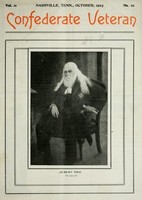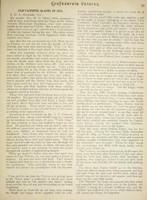Mythology and Legacy
Due to its popularity and the chorus of its believers, the mythology of the Lost Cause reshaped the legacy and collective memory of both the Civil War and Reconstruction. On this shift, Blight writes, "White supremacy, a hardening of traditional gender roles, a military tradition and patriotic recognition Confederate valor, and a South innocent of responsibility for slavery … were values in search of a history" (Blight, 291). Meaning, the values encompassed in Lost Cause ideology created a mythological past for the present. Many of the sources in this collection represent this shift towards a mythology of the South which reveals more about the era they were penned than the reality of the events they recall.
With that said, the older (and more historically correct) narrative remained very much alive within the Black community as seen in one of the sources here: Recollections of Slavery Times (1895) by Allen Parker. Dedicating the book to his mother, he reminds us that the antebellum South was not the one depicted in such movies as Gone with the Wind: "To my mother," Parker writes, "whose eyes were not permitted to see the Emancipation of her race, but who died a slave and now lies buried in an unmarked and neglected grave on the old plantation in the sunny south, near where she spent her life in unpaid toil for others, this little book is affectionately dedicated' (5).


